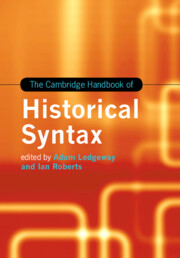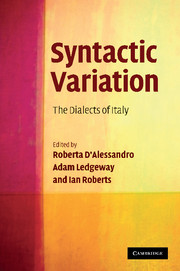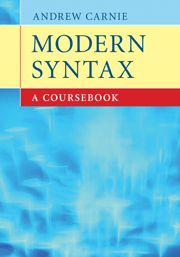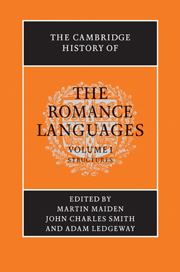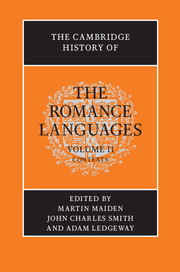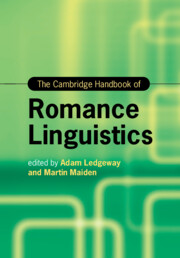The Cambridge Handbook of Historical Syntax
Change is an inherent feature of all aspects of language, and syntax is no exception. While the synchronic study of syntax allows us to make discoveries about the nature of syntactic structure, the study of historical syntax offers even greater possibilities. Over recent decades, the study of historical syntax has proven to be a powerful scientific tool of enquiry with which to challenge and reassess hypotheses and ideas about the nature of syntactic structure which go beyond the observed limits of the study of the synchronic syntax of individual languages or language families. In this timely Handbook, the editors bring together the best of recent international scholarship on historical syntax. Each chapter is focused on a theme rather than an individual language, allowing readers to discover how systematic descriptions of historical data can profitably inform and challenge highly diverse sets of theoretical assumptions.
- The first volume to provide an exhaustive treatment of key issues in historical syntax
- Integrates the results and findings of different theoretical frameworks, models and approaches in a single volume
- Organised along complementary thematic lines, rather than focusing on individual languages or grammatical phenomena
Product details
March 2017Adobe eBook Reader
9781316722985
0 pages
0kg
21 b/w illus. 21 tables
This ISBN is for an eBook version which is distributed on our behalf by a third party.
Table of Contents
- Introduction Adam Ledgeway and Ian Roberts
- Part I. Types and Mechanisms of Syntactic Change:
- 1. Grammaticalization Heiko Narrog and Bernd Heine
- 2. Degrammaticalization David Willis
- 3. Exaptation John Haiman
- 4. Reanalysis Nerea Madariaga
- 5. Analogy and extension Alice C. Harris
- 6. Restructuring David W. Lightfoot
- 7. Parameter setting Theresa Biberauer and Ian Roberts
- 8. Contact and borrowing Tania Kuteva
- Part II. Methods and Tools:
- 9. The comparative method and comparative reconstruction James Clackson
- 10. Internal reconstruction Gisella Ferraresi and Maria Goldbach
- 11. Corpora and quantitative methods Susan Pintzuk, Ann Taylor and Anthony Warner
- 12. Phylogenetic reconstruction in syntax: the parametric comparison method Giuseppe Longobardi and Cristina Guardiano
- Part III. Principles and Constraints:
- 13. Universal grammar Anders Holmberg
- 14. Abduction Henning Andersen
- 15. Transparency David W. Lightfoot
- 16. Uniformitarianism Ian Roberts
- 17. Markedness, naturalness and complexity Anna Roussou
- 18. Acquisition and learnability David W. Lightfoot
- Part IV. Major Issues and Themes:
- 19. The actuation problem George Walkden
- 20. Inertia Ian Roberts
- 21. Gradience and gradualness vs abruptness Marit Westergaard
- 22. Cyclicity Elly van Gelderen
- Part V. Explanations:
- 23. Endogenous and exogenous theories of syntactic change David Willis
- 24. Imperfect transmission and discontinuity David W. Lightfoot
- 25. Social conditioning Suzanne Romaine
- 26. Non-syntactic sources and triggers of syntactic change Laurel J. Brinton and Elizabeth Closs Traugott
- Part VI. Models and Approaches:
- 27. Principles and parameters Adam Ledgeway and Ian Roberts
- 28. Biolinguistics Cedric Boeckx, Pedro Tiago Martins and Evelina Leivada
- 29. Lexical-functional grammar Kersti Börjars and Nigel Vincent
- 30. Typological approaches Sonia Cristofaro and Paolo Ramat
- 31. Functional approaches Marianne Mithun.

